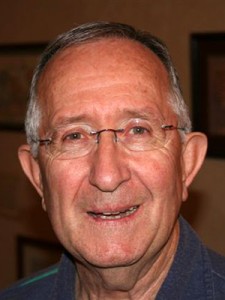By Johnnie C. Godwin
Contributing Columnist, B&R
 Pastors come and go in the lives of churches, but each one is critically important to the church. Pastors are God’s gift to a church and appointed by the Holy Spirit (Ephesians 4:11; Acts 20:38). Each real pastor has one essential at the heart of his calling and his role.
Pastors come and go in the lives of churches, but each one is critically important to the church. Pastors are God’s gift to a church and appointed by the Holy Spirit (Ephesians 4:11; Acts 20:38). Each real pastor has one essential at the heart of his calling and his role.
Yet, many churches search for a pastor with minimal requirements instead of on the essential requirements. I believe I know what is required of a pastor; because I get it from the Bible. Let me share it with you.
Helpful understandings of terms for pastor. The word “pastor” appears only once in the King James New Testament: namely, in Ephesians 4:11. The Greek word “poimen,” translated “pastor” here, is the word elsewhere in the KJV, translated “shepherd.”
Other KJV New Testament words used interchangeably for the role of pastor are elder, bishop and overseer. But as I speak of “pastor,” I’m primarily talking about the role of shepherd, used figuratively. Whatever else a pastor may be, he’s called to be a shepherd after the model of Jesus Christ Himself.
How you can know your pastor is real — genuine, authentic?
In John 21:12-17, Jesus appeared to His disciples for the third time after His resurrection. First, Jesus told them to dine with Him. Then three times in a row, Jesus asked, “Simon, son of Jonas, lovest thou me?” Peter had denied Jesus three times before the crucifixion (Matthew 26:75). So, Jesus’ three-fold questioning about Peter’s love must have pierced Peter to the heart — especially the third time.
Each time Jesus asked the question, Peter replied earnestly that he did love the Lord. And each time Peter replied, Jesus then repeated — with slight variation — how Peter was to show his love for Jesus: (1) Feed my lambs, (2) shepherd my sheep and (3) feed my sheep. Peter never forgot those commands. In fact, counting himself as a pastor also, later repeated Jesus’ command to other pastors, saying, “Feed the flock of God, which is among you” (I Peter 5:1-4).
Further, the apostle Paul told a group of pastors from Ephesus — on his last occasion to ever see them —“Feed the church of God, which he hath purchased with his own blood” (Acts 20:28). Pastors show love for Jesus by feeding the sheep!
What you have just read catches up the essence of what every pastor has to have. He has to love God with all his being and to love his neighbor with all his heart (Matthew 22:37-40). A pastor has to love Jesus and show that he does so by loving, feeding and shepherding the flock. Jesus, through the apostle John, chided the church at Ephesus for leaving Him, as their first love. And he called them to repent (Revelation 2:4-5).
Jesus gave the greatest model of shepherding in John 10. And Peter referred to Jesus in I Peter 5:4 as the chief Shepherd. Personally, my pastoring came later.
A pastor’s calling as the amazing maze of God’s grace: Testimony! I was born in a Christian home, saved by grace through faith at age 7, and called to preach at age 15. Each time I felt a real sense that God was calling me to Him and His will, I tried to say yes and answer the yes with my life.
Other than admiring my own pastors, I didn’t have a clue what it meant for God to call me to become a pastor or minister. However, two pastors helped me to see that a call to pastor and preach included a call to prepare. The apostle Paul identified pastoral qualifications in I Timothy 3:1-6 and Titus 1:5-9. That’s how I got started in pastoring and ministering.
 But during and over my lifetime of service, the term “God’s call” has grown and grown in helping me keep on answering yes to God. By that, I mean that the sense of a call is what has kept me in ministry all these years. Ephesians 4:1-3 underscores the sense of hearing and answering God’s call for all of life. I did pastor before I got out of college. Also, I pastored through seminary years and afterward. But a strange thing happened in that God revealed to me that His unfolding maze of grace led me to continue in ministry but as a writer, editor, and publisher of Christian materials. Who would have thought it? Certainly not my English teachers. I’ll spare you the details, but God did call me to minister through Christian publishing. It meant leaving the pastorate — but not leaving preaching.
But during and over my lifetime of service, the term “God’s call” has grown and grown in helping me keep on answering yes to God. By that, I mean that the sense of a call is what has kept me in ministry all these years. Ephesians 4:1-3 underscores the sense of hearing and answering God’s call for all of life. I did pastor before I got out of college. Also, I pastored through seminary years and afterward. But a strange thing happened in that God revealed to me that His unfolding maze of grace led me to continue in ministry but as a writer, editor, and publisher of Christian materials. Who would have thought it? Certainly not my English teachers. I’ll spare you the details, but God did call me to minister through Christian publishing. It meant leaving the pastorate — but not leaving preaching.
So, I said yes again and left pastoring. Some folks asked me why I left the ministry. They didn’t understand that God was still calling, and I was still saying yes. Along with loving God in Christ, the conviction of God’s call and following are the most important things a pastor/preacher-type can have. God has many ways for us to say yes in answering His call to ministry.
But we find life’s highest and best way of living is to always answer yes to God. Keep my testimony in mind whether you’re becoming a pastor, serving as one, or moving to another expression of ministry in answering God’s call. Whatever the calling, be sure that you answer yes to God! B&R

